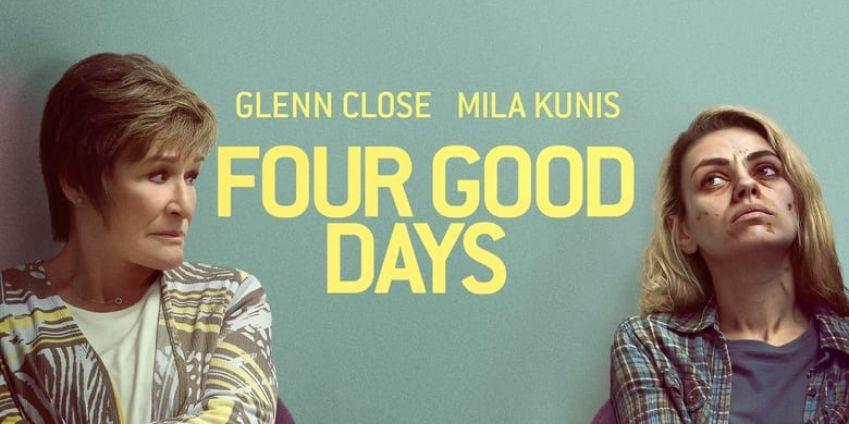Four Good Days (2020)

Four Good Days (2020) is a compelling American drama directed by Rodrigo García, based on a 2016 article by Eli Saslow in The Washington Post. The film stars Glenn Close and Mila Kunis in powerful performances, with Close portraying a mother, Deb, who is faced with the difficult task of helping her daughter, Molly (played by Kunis), break free from the grip of heroin addiction. The film’s emotionally charged narrative offers an honest and raw look at the struggle for recovery and the complex relationships shaped by addiction.
The story centers on Molly, a young woman who has been battling a long-term heroin addiction, and her mother, Deb, who has been supporting her through numerous relapses and failed attempts at rehab. As Molly approaches a critical point in her life, she requests four days to prove that she is ready to get clean and rebuild her life. These four days serve as the film’s central framework, providing a sense of urgency and suspense as mother and daughter navigate their complex, often strained relationship. The film is a poignant exploration of love, trust, and the difficulties of breaking free from the cycle of addiction.
Mila Kunis delivers an impressive performance as Molly, capturing the vulnerability and desperation of a young woman caught in the grips of addiction. Her portrayal brings depth to a character that is both flawed and sympathetic. Molly’s struggles with her addiction, her longing for redemption, and her complicated relationship with her mother are all brought to life with nuance and authenticity. Kunis effectively conveys the emotional turmoil of a person caught between wanting to change and the overpowering pull of addiction.
On the other hand, Glenn Close shines as Deb, the weary mother who has spent years trying to help her daughter but has often been left feeling powerless and emotionally drained. Close’s portrayal is both heartbreaking and powerful, as she captures the complex emotions of a mother who wants nothing more than to see her daughter succeed but is unsure of how to help. Deb’s journey in the film is one of tough love, resilience, and the realization that healing from addiction is as much about the addict’s willingness to change as it is about the support they receive from loved ones.

The film explores the difficult reality of addiction, focusing not just on the addict but also on the loved ones who are impacted by the addict’s behavior. Four Good Days does not shy away from showing the devastating effects of addiction on families and relationships, but it also offers hope through the possibility of recovery. The film portrays the emotional and physical toll that addiction takes on both the individual and those who care for them, shedding light on the tough choices that families must make in the face of such struggles.

Rodrigo García’s direction and the screenplay, co-written with Eli Saslow, create an intimate and emotionally resonant narrative that never feels overly sentimental or preachy. The pacing of the film mirrors the tension and uncertainty that both Deb and Molly face during the four days, and the close, personal nature of the storytelling draws the audience into their emotional journey. The film’s understated tone allows the powerful performances of Kunis and Close to shine, making it a deeply moving and thought-provoking exploration of addiction and redemption.

In conclusion, Four Good Days is a heart-wrenching and honest portrayal of addiction, family dynamics, and the difficult road to recovery. With stellar performances from Glenn Close and Mila Kunis, the film explores the complex emotional terrain of addiction and the toll it takes on both the individual and their loved ones. Through its raw and real storytelling, Four Good Days is a powerful reminder of the challenges of overcoming addiction, the strength of familial love, and the possibility of change.











